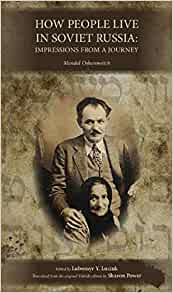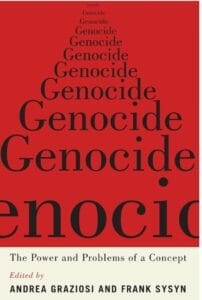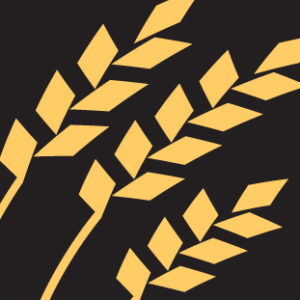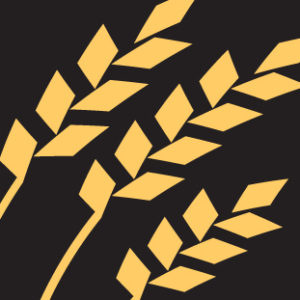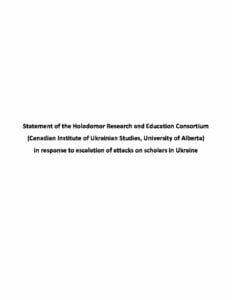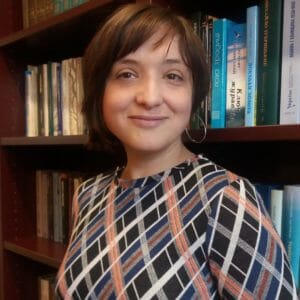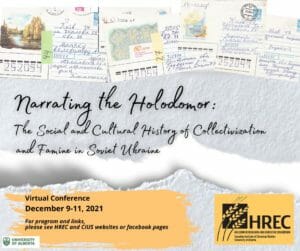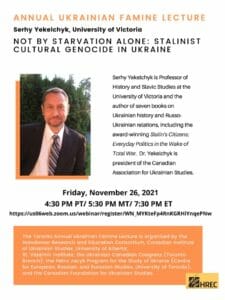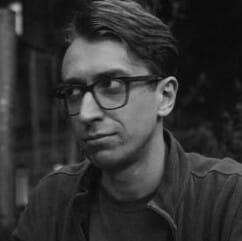Announcements
-

Now Available – How People Live in Soviet Russia: Impressions from a Journey
HREC is making available in English a translation of the account of Mendel Osherowitch, originally in Yiddish, of his visit to Soviet Ukraine in February/March 1932. Osherowitch provides first-hand descriptions of the beginning of what has come to be known as the Holodomor, the genocidal Great Famine of 1932-33 in Soviet Ukraine. He describes widespread […]
Read more -

Now Available — Genocide: The Power and Problems of a Concept
This volume contains articles based on papers presented at the conference “Genocide in Twentieth-Century History: The Power and the Problems of an Interpretive, Ethical-Political, and Legal Concept,” which was held in October 2018 at the University of Toronto and organized by HREC together with the Institute for Holocaust, Genocide, and Memory Studies at the University of […]
Read more -

HREC Research Grants 2022-2023
The Holodomor Research and Education Consortium (HREC) announces its 2022 Research Grants Competition. Grants are intended to support research that expands our knowledge and understanding of the Holodomor; publication and translation of research results; preservation of and increasing access to materials; and organization of and participation in academic forums. Deadline: April 15, 2022 https://www.ualberta.ca/canadian-institute-of-ukrainian-studies/funding-and-awards/cius-research-grants.html
Read more -

Temerty Post-Doctoral Fellowship in Holodomor Studies
The Canadian Institute of Ukrainian Studies is pleased to announce the 2022-23 Temerty Post-Doctoral Fellowship in Holodomor Studies. Offered under the auspices of its Holodomor Education and Research Consortium (HREC) for the academic year of 2022–23, the fellowship supports the study of and expansion of knowledge about the Holodomor. Applications are welcome from scholars in […]
Read more -

Statement of HREC in response to escalation of attacks on scholars in Ukraine
The Holodomor Research and Education Consortium (HREC) has issued a statement in support of colleagues in Ukraine and of academic integrity: HREC statement Dec. 8, 2021 Український переклад заяви
Read more -

Online Series Emerging Scholarship on the Holodomor
Presenter: Oksana Vynnyk (University of Alberta) Discussant: Golfo Alexopoulos (University of South Florida) The construction of a new Soviet society assumed the transformation of all spheres of life, including the health care system. Soviet authorities introduced the principle that basic health care would be free and accessible to the Soviet working class. Since the older […]
Read more -

Narrating the Holodomor Conference
The social and cultural history of the Holodomor remains understudied despite the many scholarly works on collectivization and the Famine that have been published. This conference seeks to recover the voices of those who lived through the events. Presenters will consider survivor and witness memoirs and testimonies, incorporating and analyzing both official government sources and […]
Read more -

Announcement of Major Gift to HREC
HREC is pleased to join the Temerty Foundation in sharing the news of a major gift from Helen and Paul Baszucki to promote understanding and awareness of the Holodomor. Release: Gift of Helen and Paul Baszucki to HREC
Read more -

2021 Toronto Annual Ukrainian Famine Lecture – Online
To register: Welcome! You are invited to join a webinar: Annual Ukrainian Famine Lecture | Serhy Yekelchyk | Not by Starvation Alone: Stalinist Cultural Genocide in Ukraine. After registering, you will receive a confirmation email about joining the webinar. This year’s Annual Ukrainian Famine Lecture, Not by Starvation Alone: Stalinist Cultural Genocide in Ukraine, […]
Read more -

Online Series Emerging Scholarship on the Holodomor
Presenter: Iaroslav Kovalchuk, University of Alberta Discussant: Frank Sysyn, University of Alberta Iaroslav Kovalchuk argues that the concept “Holodomor” is a reinvention of a previously existing Ukrainian word by members of the Ukrainian anti-Soviet diaspora. Iaroslav explores the meanings of the word “holodomor” before it became connected to the Ukrainian Famine of 1932-1933 and traces how Ukrainian […]
Read more
